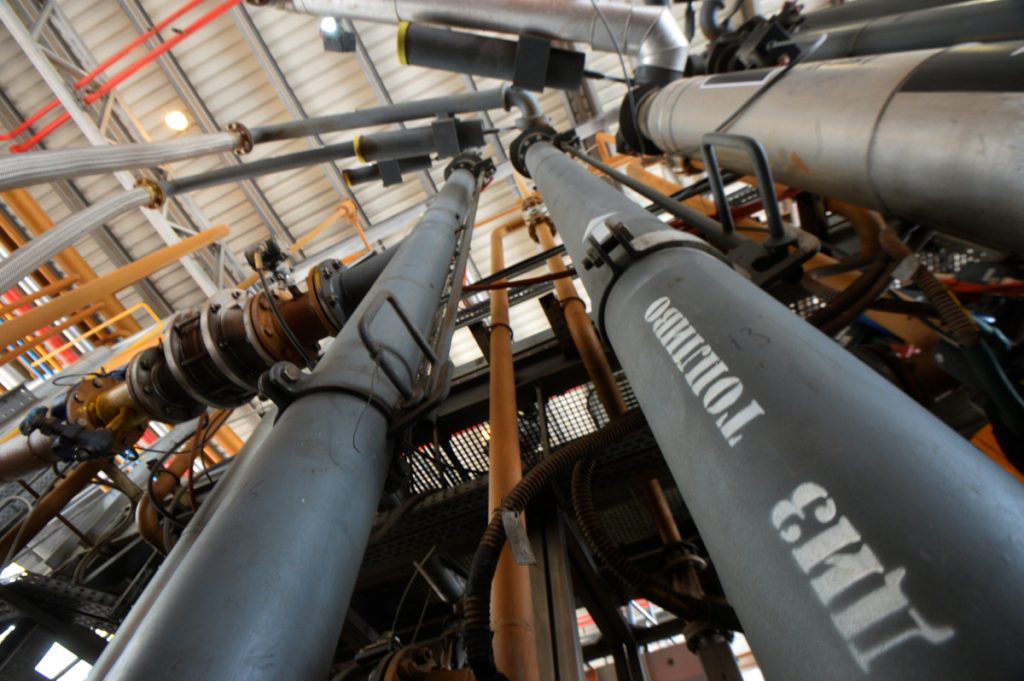Paragraph 1: The Attack and its Significance
On Saturday, Ukraine launched a drone attack targeting the Taneco oil refinery in Nizhnekamsk, Tatarstan, deep within Russian territory. This attack, confirmed by Ukrainian official Andriy Kovalenko and corroborated by Russian sources, marks the second time this particular facility has been targeted by Kyiv. The Taneco refinery, one of Russia’s largest and most modern, plays a crucial role in supplying fuel to the Russian military. Its disruption has the potential to significantly impact Russia’s ability to sustain its war effort in Ukraine. The attack highlights Ukraine’s ongoing strategy of targeting Russian infrastructure far beyond the immediate front lines, aiming to cripple Moscow’s war machine and exert pressure on the Kremlin.
Paragraph 2: The Ukrainian Perspective and Russian Response
Kovalenko, head of Ukraine’s Center for Countering Disinformation, underscored the significance of the Taneco refinery, emphasizing its capacity to process over 16 million tons of oil annually. He framed the attack as a strategic move to disrupt Russia’s fuel supply and limit its ability to wage an intensive war. In contrast, Russian authorities in Nizhnekamsk downplayed the incident, attributing an observed "orange glow" in the sky to routine flare operations at the facility and insisting that all equipment was functioning normally. This stark contrast in narratives reflects the ongoing information war between the two nations, with each side attempting to control the narrative and influence public perception.
Paragraph 3: Evidence and Verification
While Russian sources, including accounts linked to Kremlin authorities, reported evacuations of personnel from the Taneco facility and grounded flights at a nearby airport due to Ukrainian drone attack alerts, the full extent of the damage remains unclear. Footage purportedly showing a blaze at the refinery site has circulated widely, but independent verification of its authenticity remains elusive. The conflicting claims and the lack of readily available, verifiable information highlight the challenges in assessing the attack’s true impact and the ongoing need for careful analysis of information emerging from the conflict zone.
Paragraph 4: Strategic Implications and the Broader Conflict
The attack on the Taneco refinery unfolds against the backdrop of the ongoing war in Ukraine and represents another escalation in the conflict’s intensity. By striking deep within Russian territory, Ukraine demonstrates its capacity to project power and disrupt critical infrastructure, challenging Russia’s sense of security and potentially impacting public morale. The incident further underscores the vulnerability of Russia’s vast energy infrastructure and raises questions about the effectiveness of its air defense systems. This type of attack could potentially push the conflict into a new phase, with both sides escalating their efforts to target each other’s critical assets.
Paragraph 5: The Information War and Geopolitical Context
The conflicting narratives surrounding the attack, with Ukraine claiming a successful strike and Russia downplaying its impact, highlight the crucial role of information warfare in the conflict. Both sides are actively engaged in shaping public opinion and influencing international perceptions of the war. The attack also occurs within a broader geopolitical context, with increasing international concern over the escalation of the conflict and its potential consequences for global stability. The incident is likely to further fuel international debate and potentially impact ongoing diplomatic efforts to resolve the crisis.
Paragraph 6: Looking Ahead
The attack on the Taneco refinery represents a significant development in the ongoing war between Russia and Ukraine, signaling a potential shift towards targeting critical infrastructure deep within Russian territory. The incident’s long-term consequences remain to be seen, but it underscores the escalating tensions and the potential for further escalation. The conflicting narratives surrounding the attack emphasize the importance of independent verification and critical analysis of information emerging from the conflict zone. As the war continues, it is crucial to closely monitor developments and assess their potential implications for regional and global security. The incoming US presidential administration, under Donald Trump, adds another layer of complexity to the situation, as its policies towards the conflict remain undefined and could significantly influence the trajectory of the war.

